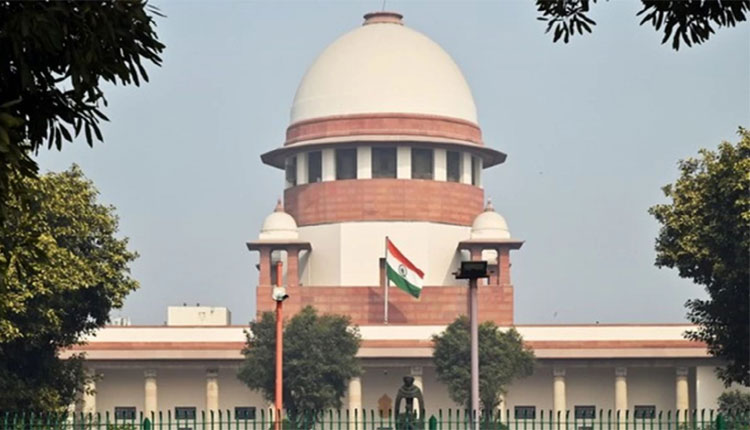New Delhi: The Supreme Court of India, those challenging the Waqf Amendment Law were told by the Central Government that none of the petitioners had personally suffered harm. Solicitor General Tushar Mehta, arguing on behalf of the Centre, said that only a few individuals could speak for the Muslim community as a whole. The issue of how to balance legal reform with community interests has become widely discussed as both teams have expressed their views.
The law’s complex development was pointed out by Solicitor General Mehta in front of Chief Justice Gavai’s bench. He pointed out that millions of citizens were consulted before the law was passed by Parliament. He argued that just because the petitioners spoke as Muslims does not mean they could act for everyone. Instead, he highlighted serious problems with the 1923 Waqf Act that made reform necessary. The amendments are being made to fix issues that have existed since 1923, he explained. This shows that the government wants the process to be more efficient.
Mehta pointed out that in 2013, the law got changed to permit non-Muslims to start waqf properties and suggested this was motivated by electoral goals. According to him, the 2025 amendment fixes this by requiring an individual to be a Muslim for five years before establishing a waqf. Thanks to this condition, the Centre can maintain its religious character and meet its historic aims.
Petitioners represented by Kapil Sibal, Abhishek Manu Singhvi and Rajeev Dhawan focused on Tuesday was the certification process for Waqf properties. They believe that because many Waqf properties are centuries old, official documentation is impossible. Mehta pointed out that if a property is labeled a waqf and owned by the government, its ownership should be checked. Should there be no investigation into illegal land grabs? He asked, saying everyone should be held responsible.
Chief Justice Gavai observed that the petitioner believes there is a risk of bias if the government checks its own statements. Mehta confirmed that officers would check land records without deciding ownership and any affected person could seek help in civil courts. He said that some questioned district collectors’ involvement in property disputes He had arranged for another officer to handle the cases, reviewing the records alone.
They also expressed worries that anyone could bring a Waqf property under question. The government would take over the case until the courts settled the matter. They said it could give the courts too much authority which could leave properties unmanaged for a long time as disputes are resolved. Mehta told the court that government claims to property would have to be addressed through a separate civil case that follows fair procedures. “Changing revenue records is part of the process, not the final result,” was his response to the Chief Justice’s question about how far such changes could go.
This hearing displays how people feel about the upcoming Waqf Amendment Law. This aims to manage Waqf properties better and deal with misuse. According to the petitioners, the changes would take away Waqf boards’ independence and leave the Muslim community without representation. Still, the Centre claimed that the changes were meant to improve transparency and consider public welfare. The result of the Supreme Court’s decision is expected to guide future waste management by aligning with both legal rules and cultural and religious considerations in India.



Comments are closed.